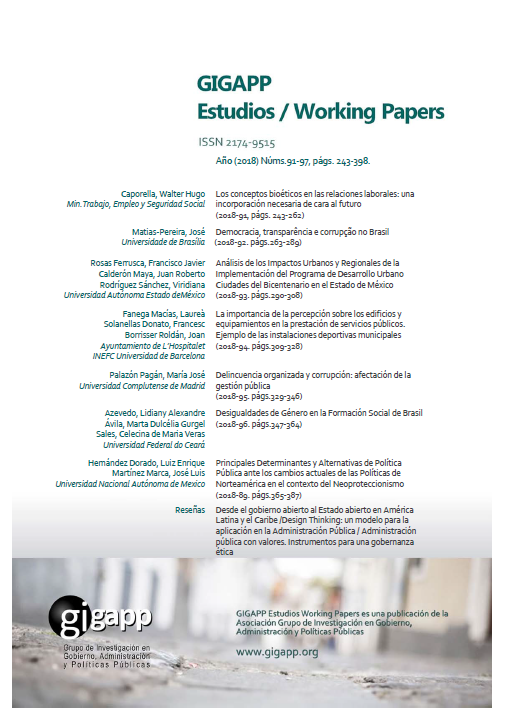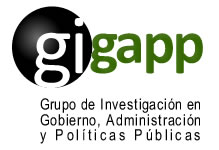Democracy, transparency and corruption in Brazil
Abstract
The objective in this article-essay to deepen the theoretical discussion on the subject that involves democracy, control of the public administration, transparency and combat to the frauds and the corruption. The aim of this effort is to analyze whether transparency in governmental actions makes relations between the State and civil society more democratic. In the article, which is supported by the Open Government Paradigm and the Corruption and Neo-Institutional theories, it is assumed that transparency is a prerogative to strengthen accountability and open government, contributing to the strengthening of external control bodies, indispensable organs for the supervision of administrative acts. Analyzes of the economic, political and ethical context in Brazil have revealed that the implementation of actions and measures to guarantee the efficiency, efficacy and effectiveness of government management actions based on the management of the interests of society requires changes in the political system, especially in the Federal Constitution. It was evidenced that the political support model of the chief executive in parliament (presidential coalition), which encourages the appointment of the majority of members of the courts of law by the political criterion, is the main obstacle to strengthening the functions of external control bodies. It is concluded, therefore, that in addition to seeking greater transparency to strengthen accountability and open government, it is necessary to revise this criterion, since it compromises the control of public administration, transparency, and the fight against corruption, makes relations between the State and citizens difficult.
Downloads
Copyright (c) 2018 José Matias Pereira, Dr.

This work is licensed under a Creative Commons Attribution-NonCommercial-ShareAlike 4.0 International License.
Those authors who have publications with this journal, accept the following terms:
a. Authors will retain their copyrights and guarantee the journal the right of first publication of their work, which will be simultaneously subject to the Creative Commons Attribution-NonCommercial-ShareAlike 4.0 International (CC BY-NC-SA Recognition License). 4.0) that allows third parties to share the work as long as its author and its first publication are indicated in this journal.
Under this open access license, readers (users) can:
- Share — copy and redistribute the material in any medium or format
- Adapt — remix, transform, and build upon the material
Under the following terms:
-
Attribution — Users must give appropriate credit, provide a link to the license, and indicate if changes were made. You may do so in any reasonable manner, but not in any way that suggests the licensor endorses you or your use.
-
NonCommercial — Users may not use the material for commercial purposes.
-
ShareAlike — If remix, transform, or build upon the material, users must distribute your contributions under the same license as the original.
- No additional restrictions — Users may not apply legal terms or technological measures that legally restrict others from doing anything the license permits.
b. Authors may adopt other non-exclusive license agreements for the distribution of the version of the published work (eg: deposit it in an institutional telematic archive or publish it in a monographic volume) provided that the initial publication in this journal is indicated.
c. Authors are allowed and recommended to disseminate their work through the Internet (e.g. in institutional telematic files or on their website) before and during the submission process, which can lead to interesting exchanges and increase citations of the published work. (See The effects of open access).



